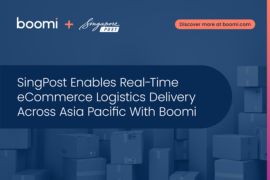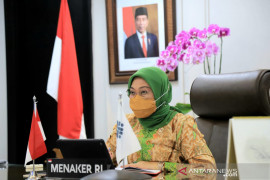E-commerce should not be treated as a general form of trading."Jakarta (ANTARA News) - The business of e-commerce in Indonesia, like in many other countries, is now developing, recording a total transactions of US$12 billion in 2014. This year it is estimated to reach $24.6 billion.
The volume of e-commerce transactions in Indonesia is still relatively small, namely about one to two percent of the total retail transactions. It is smaller than the worlds average eight percent, or the 16 percent in South Korea and 12 percent in the United States.
Yet the government is taking an anticipatory step to tackle the rapid growth of e-commerce transactions in the country. It will include it in its 14th economic policy package to be announced in the near future.
Now, various sides, including the relevant ministries/state agencies, are discussing matters on the inclusion of such transactions in the governments Economic Policy Package XIV. One of the issues that is a focus of discussions is related to taxation. It is expected that imposition of taxes would not put too much burden on the businesses.
The government will issue the XIV economic policy package, probably in the next two weeks, according to Coordinating Minister for Economic Affairs Darmin Nasution.
"Perhaps in two weeks. It is still being discussed," Darmin said in Jakarta recently (October 5).
Therefore, the next economic policy package is expected to sufficiently address the issue.
"E-commerce should not be treated as a general form of trading. The tariff should be lower as it is a fledgling industry, an early adopter," Industry Minister Airlangga Hartarto underlined while speaking on the sidelines of the launch of a book on "Developing Populist Economy and Winning ASEAN Economic Community" last week.
Indonesian businesses hope that the tax tariff for e-commerce business will be lower than the non-e-commerce industry.
"We hope the government will take sides (with businesses) with regard to the issuance of the Economic Policy Package XIV on e-commerce," Fredy Ongko Saputro, chairman of the Indonesian Employers Association (Apindo) for East Nusa Tenggara, said.
Apindo hailed the planned issuance of the package to be issued in the near future. Businesses badly need the governments support, particularly on the fiscal system with regard to the issuance of the economic policy package on e-commerce, Fredy said.
"The tax tariff should be lower than non-e-commerce because this is a new industry. We hope the tax traffic would be set at a modest rate," the Apindo chairman for East Nusa Tanggara, said.
The regulation to be issued would determine the success of e-commerce in Indonesia as it has the potential to guarantee the survival of fledgling businesses using e-commerce, economic observer Agustinus Prasetyantoko said, elaborating the point.
Agustinus is also of the opinion that tax exemption would help boost e-commerce in the country.
"In certain cases, tax could even be abolished during the start-up phase," he underscored.
Singapore could be used as the reference country to study ways to develop and expedite the expansion of e-commerce. It provides tax facilities and a low tax for start-ups in addition to assistance in the form of access to cheap capital.
Industry Minister Airlangga therefore reminded that the government would have to pay special attention, especially to the fiscal system applicable.
One important point being discussed is tax which should not pose any hindrance in the development of e-commerce, Airlangga disclosed.
The e-commerce market has begun to grow in Indonesia. In 2014, transactions were valued at $12 billion. E-commerce spending in Indonesia was only 1 to 2 percent of the total retail sales as against 16 percent in South Korea, 12 percent in the United States and the world average of 8 percent.
However, it is worth noting that the performance in 2014 represented a significant increase from $8 billion in 2013. In 2016, the value of transactions is predicted to rise to $24.6 billion.
Therefore, many people have predicted that Indonesia would be among the top ranked countries in e-commerce in the future after China and India in Asia.
Meanwhile, the government has prepared a roadmap and it would be issued in the near future, Telecommunication and Informatics Minister Rudiantara said.
"The concerned ministers have initialed the roadmap document and we hope it will be issued in the near future," Minister Rudiantara stated.
President Joko Widodo is most likely to sign the roadmap document this month, Rudiantara noted. It outlines a human resources development program and the funding pattern for e-commerce, and he forecast that Rp1 trillion could be required.
"The amount of funds involved is big and the plan should be appropriate for the startup. A model of revolving funds could be adopted," the minister noted.
The roadmap comes as part of the support that the government is extending to e-commerce in Indonesia. By 2020, it is expected to reach a value of Rp130 billion.
(T.A014/INE/KR-BSR/O001)
Reporter: Andi Abdussalam
Editor: Priyambodo RH
Copyright © ANTARA 2016






